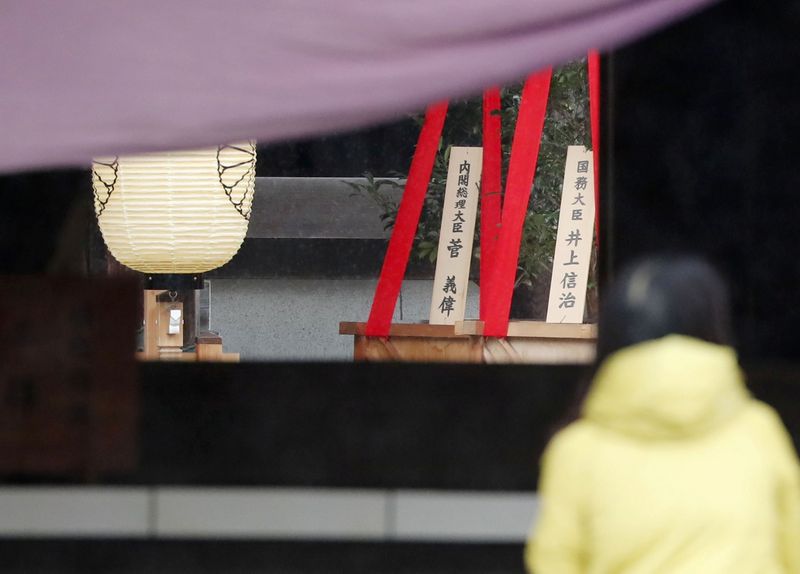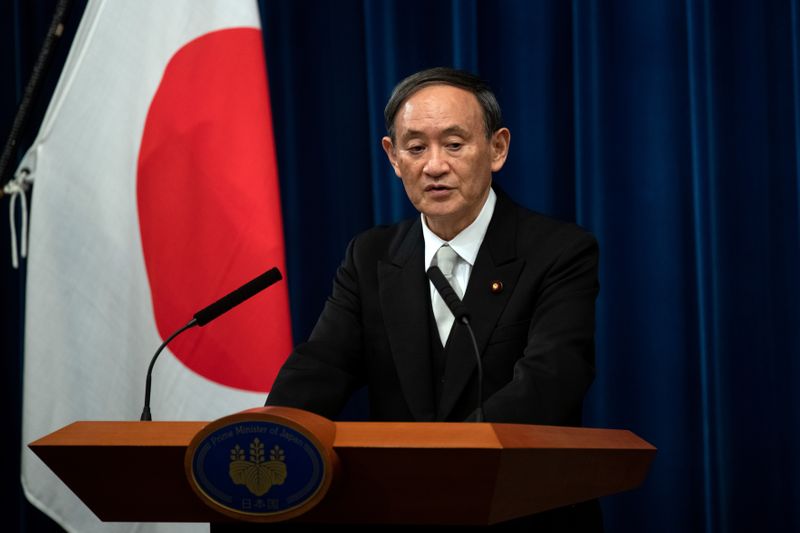TOKYO (Reuters) – Japanese Prime Minister Yoshihide Suga has sent an offering to the controversial Yasukuni Shrine for war dead to coincide with its autumn festival, public broadcaster NHK reported on Saturday.
It would be Suga’s first such offering to the shrine since taking office last month. His predecessor, Shinzo Abe, had also regularly sent offerings via an aide on the anniversary of Japan’s surrender in World War Two and during the shrine’s spring and autumn festivals, refraining from visiting in person to avoid angering China and South Korea.
The shrine, in Tokyo, is seen by Beijing and Seoul as a symbol of Japan’s past military aggression because it honours 14 Japanese wartime leaders convicted as war criminals by an Allied tribunal as well as war dead.
Abe’s pilgrimage to the shrine in 2013 sparked outrage in South Korea and China and an expression of “disappointment” from the United States.
Suga made a visit to the shrine in August 2011, according to a post on his official blog, well before becoming the Abe government’s chief cabinet secretary in December 2012.
The South Korean government “expresses deep regret that Japan’s government and congressional leaders have again dedicated an offering to the Yasukuni Shrine which glorify Japan`s past invasions,” the foreign ministry said in a statement on Saturday.
It said it urged Japanese leaders to face up to history and show “humble and genuine reflection” through action with the launch of a new cabinet.
Ties between Tokyo and Seoul have remained strained due to bitter memories of Japan’s 1910-1945 colonisation of the Korean peninsula, including a dispute over compensation for Koreans forced to work on Japan’s sites during wartime. Tokyo says the matter was settled by a 1965 treaty normalising bilateral relations.
Abe visited Yasukuni on Sept. 19, days after resigning as Japan’s leader.
(Reporting by Chang-Ran Kim; additional reporting by Joyce Lee in Seoul; Editing by Leslie Adler and Tom Brown)


























